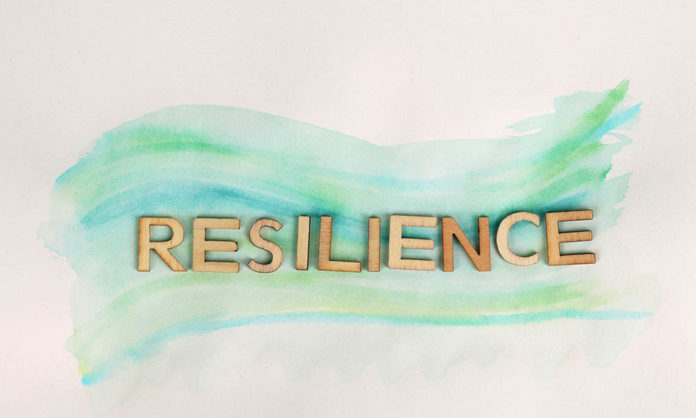We have recently been faced with the enormity of grieving the lives of 20 beautiful children and six courageous teachers and staff at Sandy Hook Elementary School. And sadly, this is not the only shooting rampage our country has experienced. Numerous other shootings in schools and colleges, in malls and in movie theaters and on the streets have forced us to realize that there is no absolute safety. Although these events are still rare and not the norm, it is now clearer than ever that the idea of perfect security has been an illusion.
Psychologist James Halpern, director of the Disaster Mental Health Institute at SUNY New Paltz, was recently interviewed on National Public Radio about his work in Newtown. He was called upon by the American Red Cross to join a highly-trained team of mental health professionals to help the families of victims cope with their immense grief. Halpern said this shooting is a national trauma like 9/11 and that it struck at the hearts and minds of so many because it violated two cherished assumptions: that children are innocent and should never be the targets of gun violence and that certain places should be off-limits to violence, namely a first grade classroom in an elementary school. He said that this type of violence leaves people feeling extremely vulnerable – almost naked.
Trauma and resilience
We know that it’s typical for people to experience a variety of emotions following a traumatic event, such as: shock, numbness, fear, anger, disillusionment, grief and others. People often have trouble sleeping, concentrating, eating or remembering even small tasks. Many feel that the world is a more dangerous place today than it was yesterday and it will take some time to recover a sense of equilibrium. However, this experience has also taught us that life is very precious and we shouldn’t take a single day for granted. In addition, it reminds us of how important resilience is in the face of tragedy. Being resilient means that we will grieve and suffer, for we are human, but that we will survive and come back stronger.
Below are some ways in which we can build our own resilience in order to adapt better to this type of tragedy, as well as deal with family and relationship problems, serious health problems or work and financial stress.
6 steps toward greater resilience
Developing resilience is a personal journey, but a necessary one for all of us. When we are faced with something that feels insurmountable, it’s important to remind ourselves that our healing and growth depend upon the choices we make going forward.
- Get back to what is familiar – In the days and weeks after 9/11 I counseled many people who escaped the burning buildings, but obviously not the trauma. I encouraged people to do their best to return to their routine as much as possible. The people who closed their blinds and hid in their NYC apartments took much longer to heal than those who went to dinner at their favorite restaurant, met with friends and worked out at their gym. In Newtown, I liked hearing that the school staff took the children’s desks from their elementary school filled with all their books, pencils and drawing supplies and placed them in their new classroom so that they could find what was familiar. They knew this would be comforting for the children when they entered their new classroom. As much as we may want to hide under the blankets, resilience comes from doing the opposite. It’s never easy, but it’s the way our hearts and minds heal best.
- Make connections – Accepting help from close family members, friends or others is very important. This isn’t a time to be a lone wolf. So often, there are people around us who are experiencing very similar emotions and the healing power of joining together and sharing stories, fears and hope cannot be underestimated. Newtown residents reported that the community prayer vigil held after the shooting was enormously helpful. In fact, millions of people from all over the world joined together with messages of condolences, prayer and offers to help. When we are struggling, we need to keep our family close, reach out to our friends or consider joining a support group. They can wrap themselves around us and help us find our way again.
- Maintain a hopeful outlook – We need to believe that the good will overcome the bad. We just need to look around and find the many random acts of kindness being performed every day. An optimistic outlook enables us to expect that good things will happen in our lives again. When we visualize what we want, rather than worrying about what we fear, it changes our entire mood.
- Take care of yourself – When we are overwhelmed or grieving we often stop self-care and this is when we need it the most. We need to pay attention to our needs and feelings and engage in activities that are enjoyable and relaxing. Get a massage or go for a swim. Exercise and eat well. Get enough sleep. Taking care of ourselves keeps our mind and body primed to deal with situations that require resilience.
- Look for opportunities for self-discovery – We often learn the most about ourselves and grow the most when we have faced struggles or adversity. People who have experienced tragedies or hardships have reported better relationships, greater sense of strength, increased self-worth, a more developed spirituality and a heightened appreciation for life. We should ask: is there something powerful that I have learned from this experience that I can use in the next chapter of my life?
- Practice acceptance – Change is part of life and although certain goals or dreams may no longer be attainable, focusing on those things that we can change is much healthier than wishing problems away. We can’t change the fact that highly stressful events happen, but we can change how we interpret and respond to these events. Try looking beyond the present to how the future may be a little better and look for small signs that things are improving.
Final thoughts
As a result of these tragedies we are all connected on a deeper emotional level and we are reminded of what is truly important. We need to hold onto these lessons so that we can grow within ourselves and better support one another.
Diane Lykes is a Principal of Synergy Counseling Associates in Albany where she specializes in individual and couples counseling, educational training and clinical consultation. She can be reached at 466.3100 or l[email protected].





